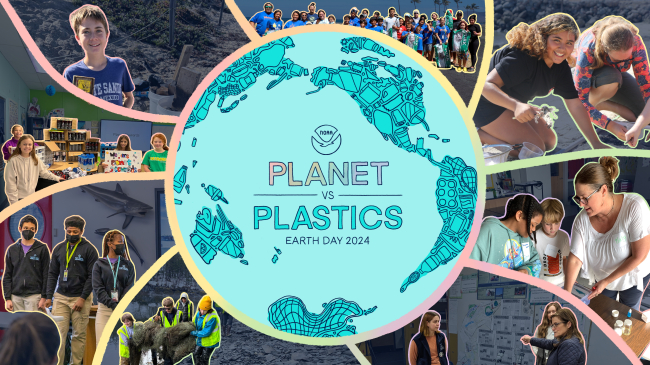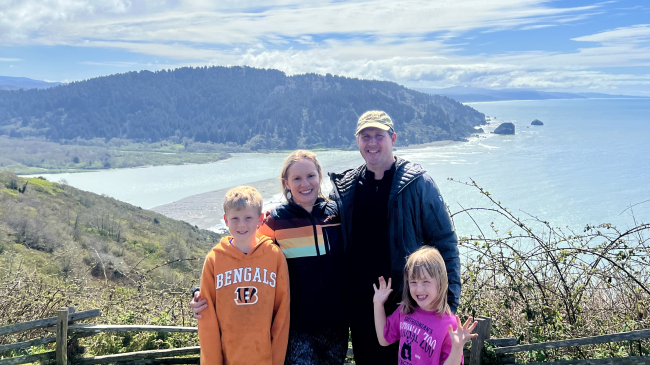How one Knauss Marine Policy Fellow learned to forgo traditional words of wisdom in favor of her own ‘sustainable’ career
Teetering — both figuratively on the edge of a big career move and literally on a pair of new business heels — I walked into my first of 15 interviews for the Knauss Marine Policy Fellowship.
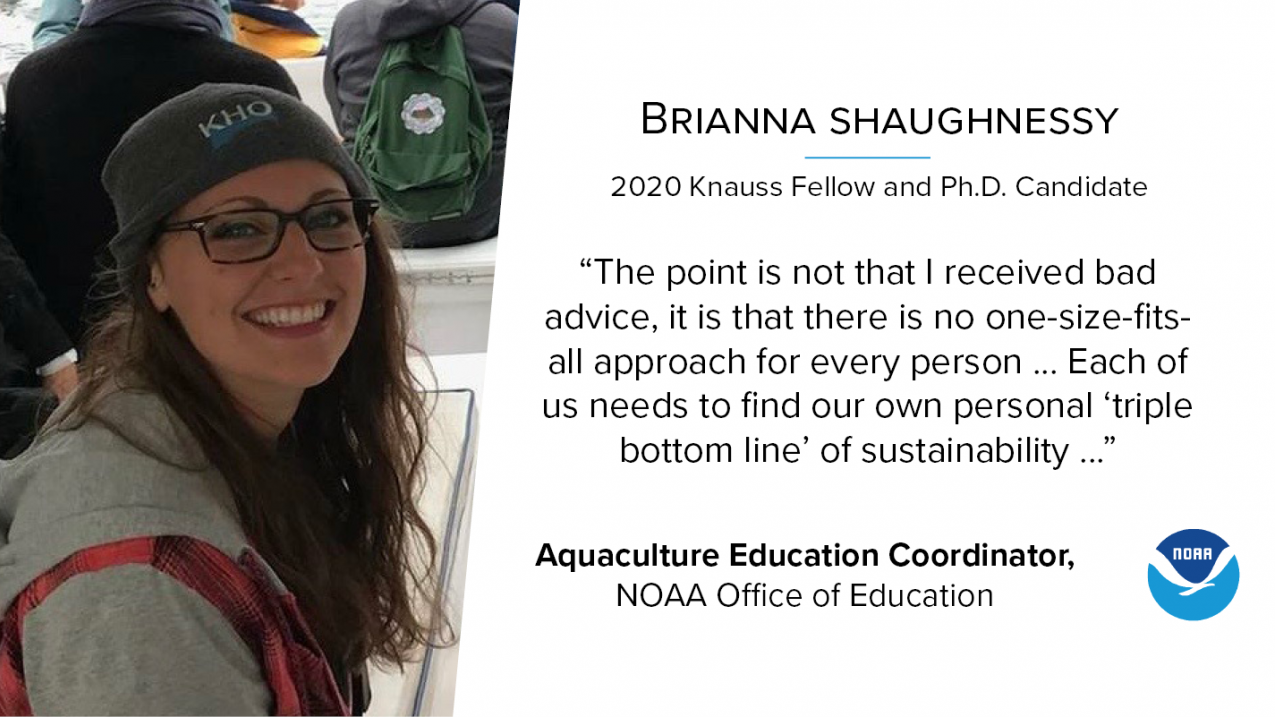
A portrait photo of Brianna Shaughnessy, who was a 2020 Knauss Fellow, is a current Ph.D. candidate, and the Aquaculture Education Coordinator in the NOAA Office of Education. She is quoted saying, “The point is not that I received bad advice, it is that there is no one-size-fits-all approach for every person ... Each of us needs to find our own personal “triple bottom line” of sustainability ...” (Image credit: Graphic by NOAA Office of Education. Photo courtesy of Brianna Shaughnessy.)
As one of 60 finalists, I was embarking on a whirlwind week of interviews with host offices in the federal government, the results of which would determine where I would work for the next year as a fellow. The most common career advice I received as I went into placement week was, “This is your opportunity to try something new, so consider stepping outside of your comfort zone.”
My first interview put this advice to the test. It was for a position that I would be very comfortable in, coordinating across NOAA offices to better connect NOAA’s aquaculture outreach and education offerings with external partners like environmental educators and the aquaculture industry. For the past few years, I had been working to better connect ecologists, educators, and seaweed farmers to work together towards common sustainability goals for aquaculture. It was an easy fit.
Ultimately, I didn’t take the advice to step outside of my comfort zone. I followed my gut and accepted the position as NOAA aquaculture education coordinator, which opened doors for me to use my unique creative skill set to make a positive impact on public aquaculture literacy.
Throughout our early careers, we receive all kinds of advice about how to be successful. Even though it is rooted in wisdom and experience, teasing apart what advice works for us as individuals can be overwhelming. If we put too much weight on what worked for other people, sometimes it distracts us from forging our own paths. Leading up to my Knauss fellowship, I often borrowed aquaculture’s concept of the “triple bottom line” of environmental, social, and economic sustainability to help me confidently decide which advice to follow and which to let go. Just as I would ask whether an aquaculture project met these three requirements, I learned to ask myself, “Does this advice support my own goals for a sustainable career?”
Here are a few pieces of expert advice I received — but didn’t take — in favor of my own triple bottom line.
Jump to:
- ‘It’s too early to apply’
- ‘Stay in your lane or you’ll never get anything done’
- ‘Boost your resume with unpaid extracurriculars’
- ‘Treat every meeting as a networking opportunity’
- My advice (take it or leave it!): Find your own triple bottom line
‘It’s too early to apply’
When I sent in my application to the Knauss Marine Policy Fellowship in 2019, my mentors were a bit skeptical about whether this was a logical next step for me. I was only two years into my dissertation work, whereas the Knauss fellowship typically helps recent graduates branch out after being hyper-focused on their master’s, Ph.D., or law degree.
Even though I valued my mentor’s perspectives, I also knew academia would not be a sustainable environment for me long-term, and I was eager to move on.

Turns out, it’s never too early (or too late) to make a career move that better aligns with your personal and professional goals. The Knauss aquaculture education position ended up strengthening my dissertation work, and it was an opportunity to make a name for myself in my field. During my fellowship, I explored using science communication to make an impact — which is now the foundation of my final dissertation chapter. This was a position that was only offered once, and if I had waited, I would have missed out. I took a chance on the Knauss fellowship, and it led me into a position that I didn’t even know existed, one that was the perfect fit for me.
‘Stay in your lane or you’ll never get anything done’
When working across multiple disciplines, incorporating different perspectives can be challenging and progress can be slow. Some mentors cautioned me against taking on complex interdisciplinary partnerships early in my academic career. Luckily, the transdisciplinary coursework I completed as part of the National Science Foundation fellowship that supported the first two years of my Ph.D. taught me each component of expertise needed to navigate partnerships across different disciplines. Through the Integrated Graduate Education and Research Traineeship (IGERT): Coasts and Communities offsite link fellowship at the University of Massachusetts Boston, I joined a cohort of students from across disciplines to solve “wicked environmental problems offsite link” together. Rather than narrowing in on one research subject, we learned about a breadth of environmental topics and explored how different sectors manage uncertainty in sustainability.
The fellowship taught me how to forge genuine relationships with the working waterfront communities that I grew up with on Cape Cod, and whom I hoped my research could help. I learned that taking the time to find common ground across perspectives is key to achieving sustainability goals, a skill I drew on regularly as a Knauss fellow. Each of my NOAA host offices recognized that so much can be accomplished when not everyone in a room is an expert on the same topic!
‘Boost your resume with unpaid extracurriculars’
Another common piece of career advice is to enhance our resumes by devoting our spare time to research opportunities that are usually unpaid. The truth is, that’s not realistic for many students. In 2016, as I sought out advice for starting a Ph.D., I was encouraged to leave my bartending job and focus only on my studies.
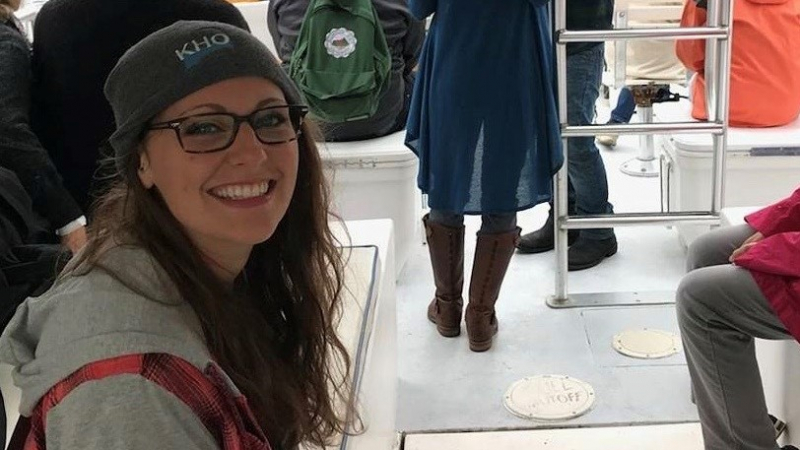
This turned out to be a moment where I needed to seriously consider the economic sustainability of me pursuing a Ph.D. So, despite cautionary tales that it would be too distracting, I returned to bartending because I didn’t have the option not to. The silver lining was that I brushed up on all kinds of transferable skills without putting myself into economic hardship! Through my service industry gigs, I learned how to thrive in collaborative and dynamic environments and practiced my communication and quick problem-solving skills — I even highlight them on my resume. Standard academic extracurriculars may not have been economically sustainable for me, but I still managed to navigate finding a career I love, and you can too.
‘Treat every meeting as a networking opportunity’
For many like myself, the idea of “networking” can be both intimidating and cause us to set unattainable goals for ourselves. When we see colleagues advancing their careers, we might wonder if we’re not taking the right steps fast enough. But in my experience, the stories and insights shared in between networking opportunities have proven more valuable than a well-rehearsed elevator pitch.
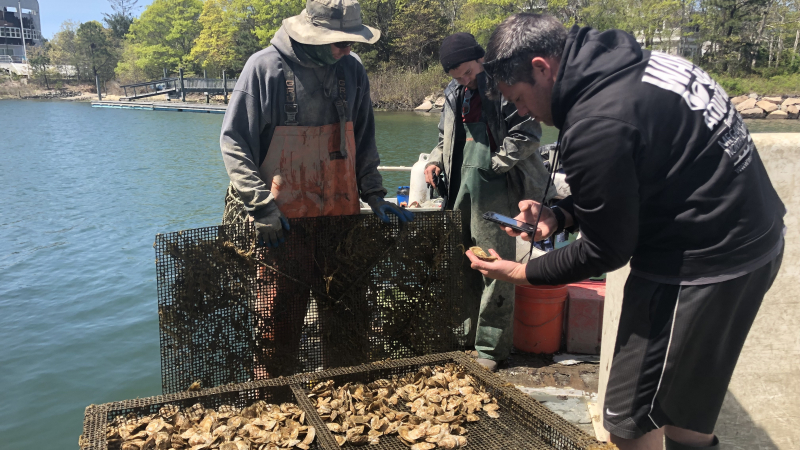
Social sustainability for me meant assembling my network organically over time. This might not have looked like “networking” on the surface, but it still had the same positive impact. Careers in the environmental and sustainability fields are daunting but full of compassionate and collaborative people. Our professional networks challenge us to push through inevitable rough patches. So, rather than treating every meeting like a networking opportunity, I followed my instincts and surrounded myself with colleagues that double as career mentors and pillars of mutual support.
My advice (take it or leave it!): Find your own triple bottom line
During the Knauss interview process, there were a lot of tips and tricks circulating about how to be placed in a “good” position and how to make the “right” decision. Since then, I’ve had time to reflect on the winding path I took to get to placement week and the fulfilling year that followed. While I respected those that gave me career advice along the way, I often chose to forge my own way. The point is not that I received bad advice, it is that there is no one-size-fits-all approach for every person or career path. Each of us needs to find our own personal “triple bottom line” of sustainability and check in with it once in a while in order to find the perfect fit.


